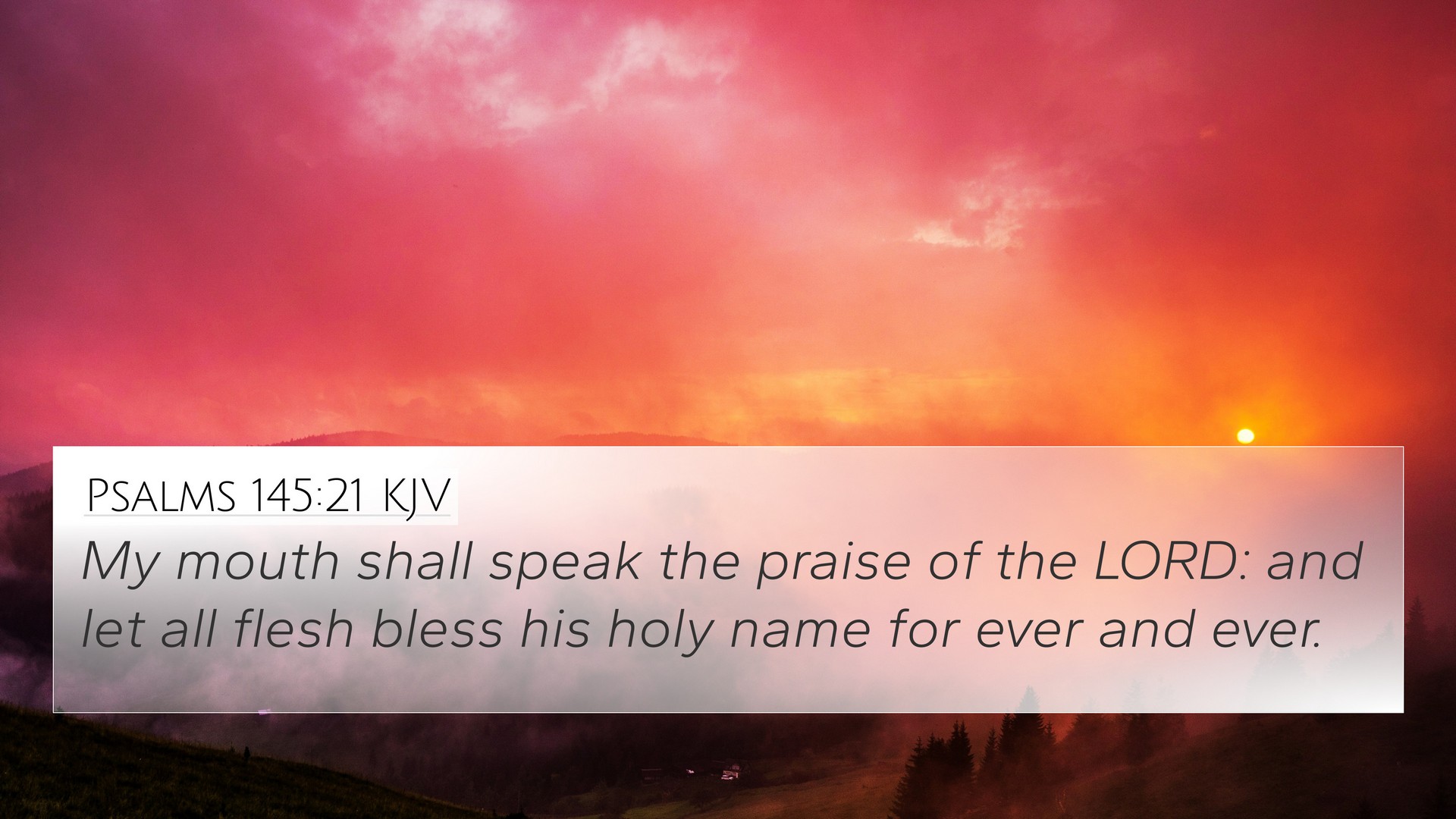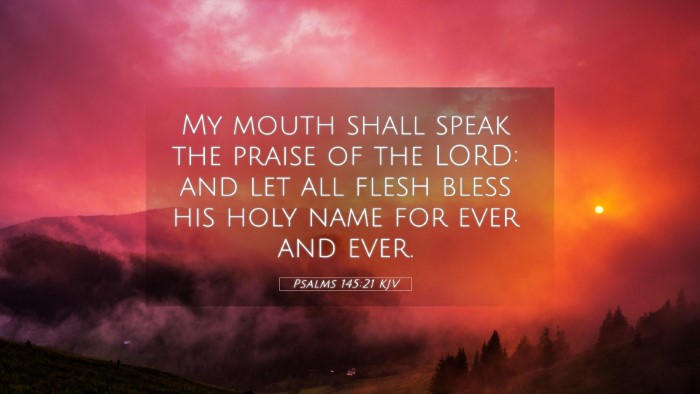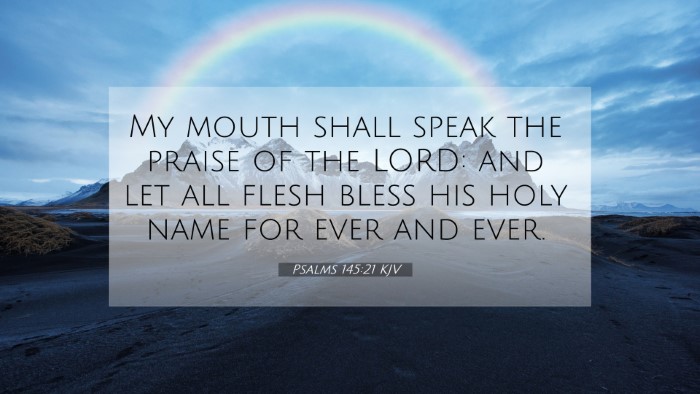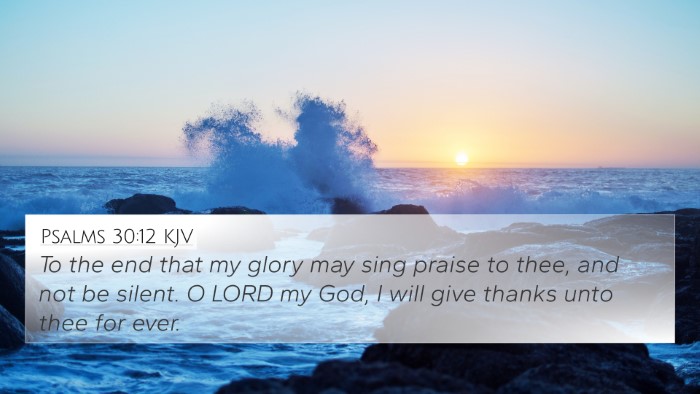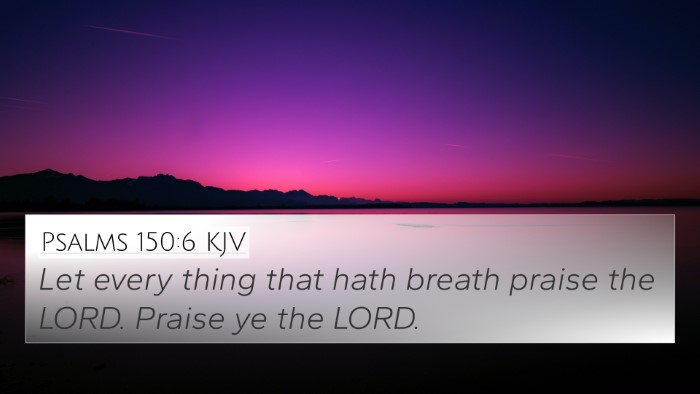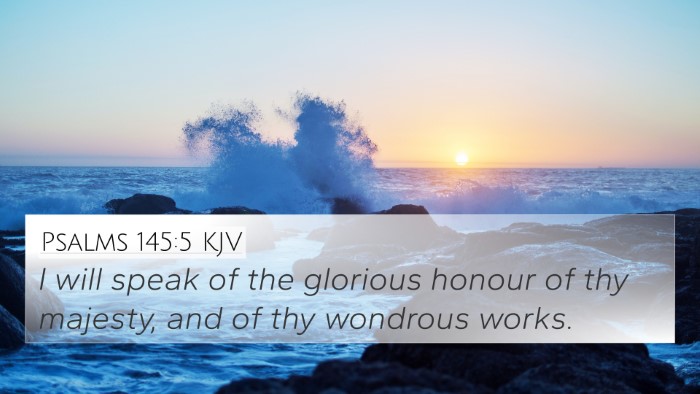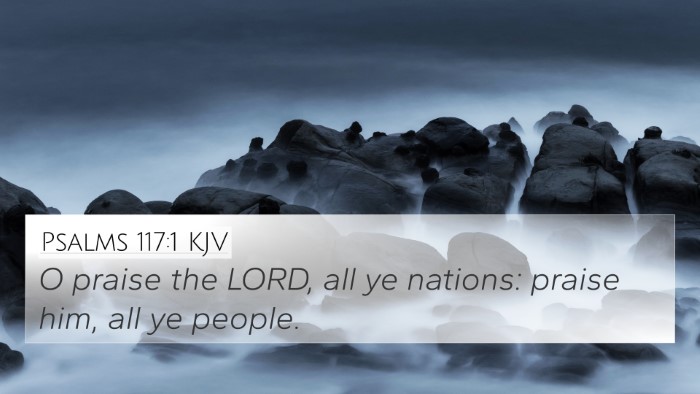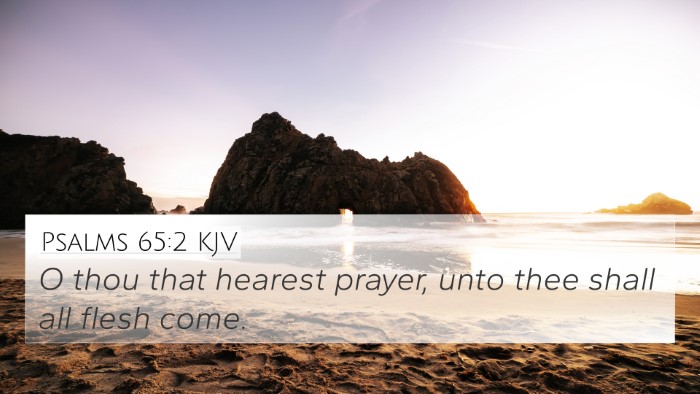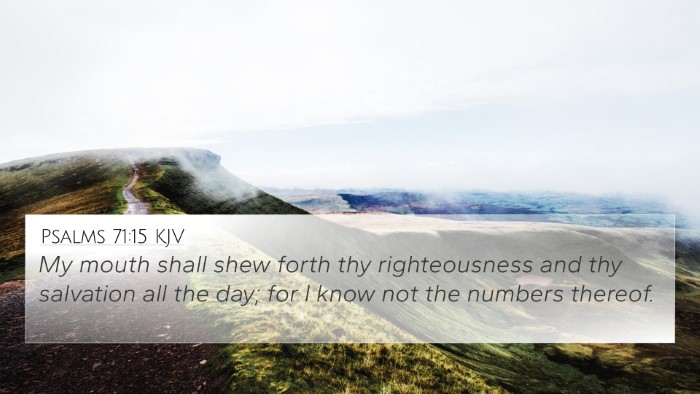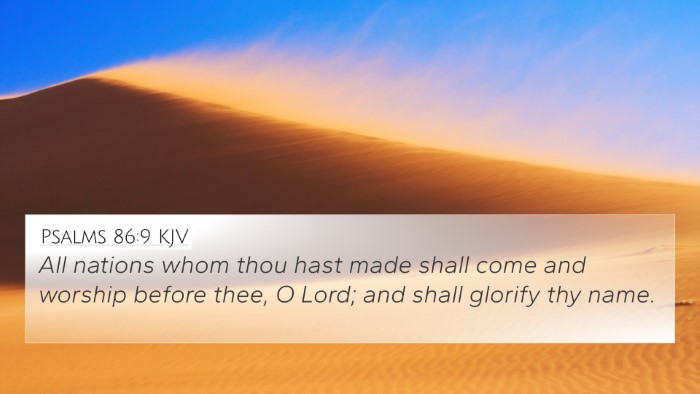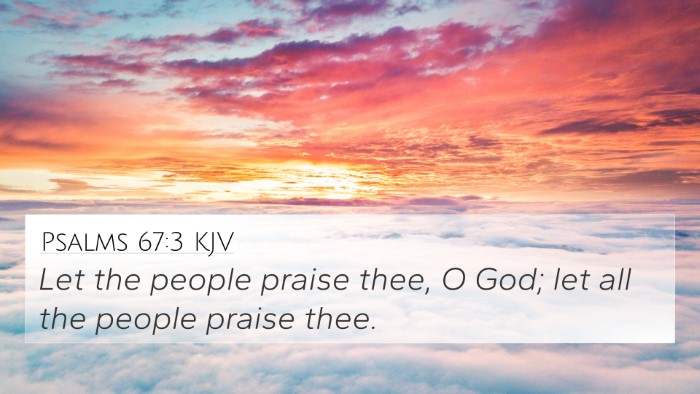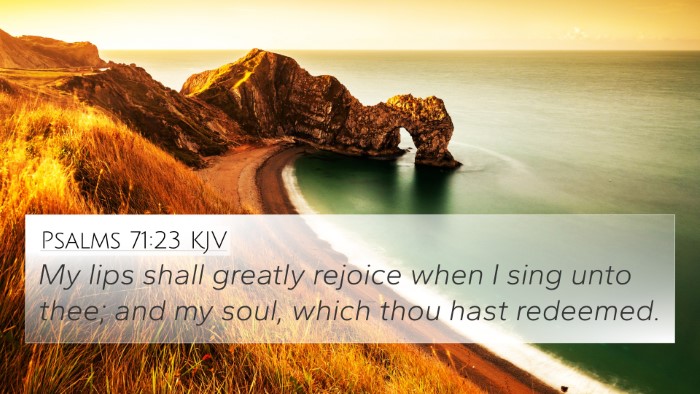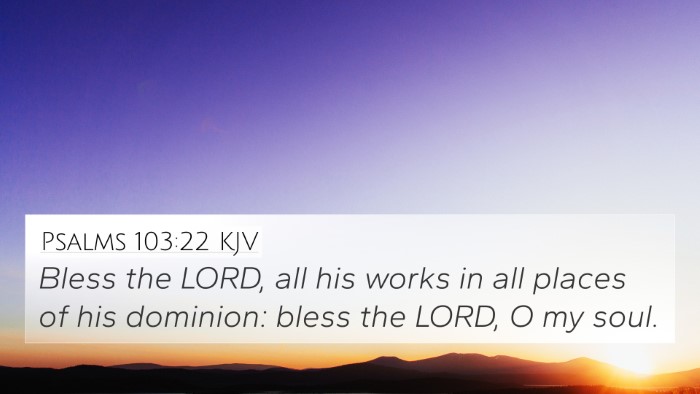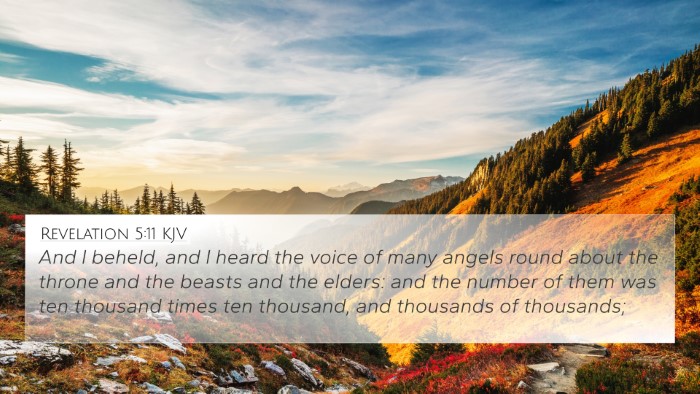Understanding Psalms 145:21
Psalms 145:21 states:
"My mouth will speak in praise of the LORD. Let every creature praise his holy name for ever and ever."
This verse emphasizes the significance of praise in worship and the eternal nature of God's holiness. It is essential to comprehend both the context and the theological implications of this verse, often supported by insights from public domain commentaries.
Verse Meaning and Interpretation
In the context of Psalms 145, the psalmist reflects on the greatness of God and invites all of creation to join in reverencing Him. The following insights, derived from well-known biblical commentators, help illuminate the meaning of this verse.
Insights from Commentaries
- Matthew Henry: He highlights that this verse serves as a call to worship, where the psalmist, after reflecting on God’s majesty and works, encourages both himself and others to engage in continual praise. Henry asserts that the declaration of God's goodness should always flow from the believer's mouth.
- Albert Barnes: Barnes emphasizes that the phrase "Let every creature" suggests an all-encompassing invitation to praise God, recognizing His sovereignty over all creation. This encapsulates not only mankind but all celestial and terrestrial beings, thus underscoring God's authority and magnificence.
- Adam Clarke: Clarke connects this psalm to the theme of divine praise, noting how it points to the importance of witness among believers. He interprets the conclusion of the psalm as a proclamation of eternal reverence for God's name, echoing a sentiment that should pervade all aspects of life.
Thematic Connections and Cross-References
Psalms 145:21 intersects with various themes in the Bible, primarily focusing on the attributes of God that inspire worship and praise. Here are some cross-references to consider:
- Psalm 103:1: "Praise the LORD, my soul; all my inmost being, praise his holy name."
- Isaiah 42:12: "Let them give glory to the LORD and proclaim his praise in the islands."
- Revelation 5:13: "To him who sits on the throne and to the Lamb be praise and honor and glory and power, for ever and ever!"
- Philippians 2:10-11: "That at the name of Jesus every knee should bow, in heaven and on earth and under the earth, and every tongue acknowledge that Jesus Christ is Lord, to the glory of God the Father."
- Romans 14:11: "It is written: 'As surely as I live, says the Lord, every knee will bow before me; every tongue will acknowledge God.'
- Psalm 150:6: "Let everything that has breath praise the LORD. Praise the LORD."
- Nehemiah 9:6: "You alone are the LORD. You made the heavens, even the highest heavens, and all their starry host, the earth and all that is on it, the seas and all that is in them."
Exploring the Connection Between Bible Verses
The connection between various Bible verses allows for a richer understanding of Scripture, and tools for Bible cross-referencing facilitate this exploration. Engaging with cross-references enhances the study of Psalms 145:21 by establishing the overarching themes of praise, worship, and the acknowledgment of God's greatness across both the Old and New Testaments.
How to Use Bible Cross-References
When studying Scriptures, here are some methods to effectively utilize biblical cross-referencing:
- Bible Concordance: Use a Bible concordance to find keywords associated with praise and reference other scriptures that echo similar sentiments.
- Cross-Reference Bible Study: As you study a particular verse, jot down related verses and explore how they interconnect.
- Identifying Themes: Look for recurring themes of worship, holiness, and adoration that tie different passages together.
- Comparative Bible Verse Analysis: Compare verses that discuss similar subjects, such as God's eternal nature or His authority over creation.
Conclusion
Psalms 145:21 serves as a powerful reminder of the need for constant praise and acknowledgment of God's holiness. Through engaging with various biblical commentaries and understanding cross-references, one can develop a deeper appreciation of this verse's theological significance. The connections between the heartfelt worship expressed in this psalm and other scriptures in the Bible reveal a unified dialogue redirecting focus towards God's eternal greatness.
